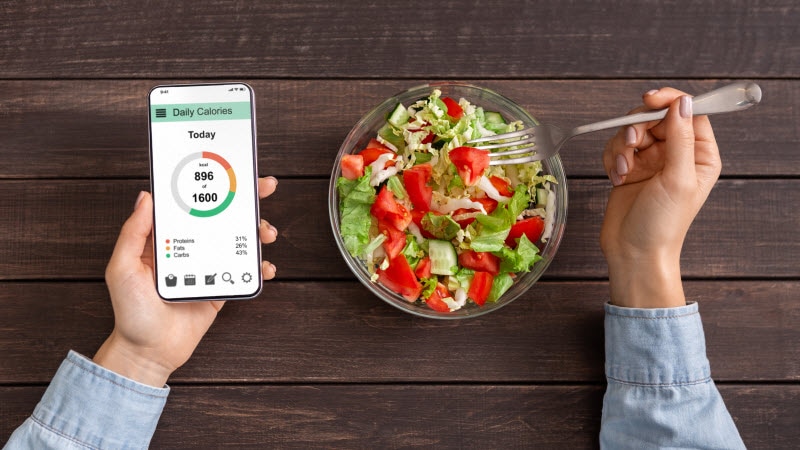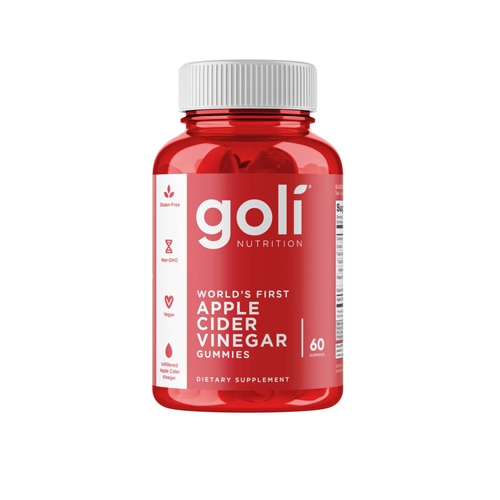At one point or another, you’ve probably heard the diet advice that consuming less
calories than you burn off is all it takes to lose weight. Yet there may be important pieces of information that this model fails to address that impact both your weight and your health. If you’re someone who is trying to
move away from traditional restrictive dieting and into healthier patterns of eating, it’s important to understand the bigger picture of health. Keep reading to learn more about what this model may not be telling you.

What makes up the “calories in/calories out” model?
The “calories in/calories out” model is based on the simple premise that the number of calories you consume needs to match the number you burn in order to maintain a stable weight. Thus, consuming more or less calories will cause you to either gain or lose weight. While food is the only thing that contributes to the “calories in” portion of this model, there are a few different factors that affect the “calories out” part of the equation.
Your body burns calories through 3 major bodily processes, including:
- Your metabolism. This makes up the largest portion of calories you burn each day. Your body requires a large amount of calories to sustain essential daily functions such as your heartbeat and lungs. This is known as your basal metabolic rate (BMR), and it is entirely unique to you. Some factors that impact your metabolic rate include your age, gender, genetics, muscle mass, hormone function, presence of illness, and certain life stages such as pregnancy.
- How active you are. In addition to intentional exercises like running and lifting weights, your level of activity also includes daily tasks such as walking, doing housework, and caring for children.
- The foods you eat. Your body uses between 5-15% of the calories you consume for digestion. This is known as the thermic effect of food, and it is perhaps the most overlooked factor when it comes to calorie burn. Some foods require more energy to digest than others, so the composition of your diet can lead to either more or less calorie burn each day.
What the “Calories in/calories out” model doesn’t tell you
While it is true that you do need a calorie deficit to lose weight, there are more factors to consider. This is because different foods impact your body in different ways, and can make it either easier or more difficult to achieve or maintain a healthy weight range.
Here are some things that the “calories in/calories out” model fail to address:
Nutrient density matters. Calories from nutrient dense foods, such as vegetables, whole grains, beans, and fish benefit your health much more than calories from nutrient poor foods (like soda, desserts, and highly processed or fast foods, which are also referred to as “
empty calories”). The calories in/calories out model fails to address the importance of nutrient density and instead treats all calories the same.
The type of food you eat impacts your metabolism. Whole foods take
more energy to digest than highly processed foods. Your body may burn more calories from eating a meal containing natural, whole foods than from eating a nutrient-poor meal containing highly processed foods, even if the two meals contained the same amount of calories. In addition, protein
takes the most energy to digest of all the macronutrients, so eating more protein is another way to boost calorie burn.
Different foods impact your level of fullness. Eating 200 calories of almonds will impact your fullness in a greater way than eating 200 calories from a donut. This is because nutrient-rich foods like almonds contain protein, healthy fats, and/or fiber, which all contribute to a feeling of fullness. Donuts, and other sources of “empty calories” do not fill you up as much and may lead to overeating throughout the day, potentially leading to weight gain over time.
Calorie restriction may slow down your metabolism. If your primary goal is to eat less calories, you may unknowingly be making weight loss even harder for yourself. During calorie restriction, your body may
lower the amount of calories it burns as a protective mechanism. To continue losing weight, you often have to continue reducing calorie intake even more which is both difficult and unsustainable to do. This is one factor that often leads to the infamous weight loss plateaus, which can be frustrating.
What to focus on instead of calories alone
Since calories aren’t the only factor to consider when it comes to your weight or health, you’re probably wondering what you
should focus on!
Here are some tips:
1. Consume a nutrient dense diet with plenty of variety- as mentioned above, nutrient density matters much more than calorie count alone. Regardless of how many calories you consume, try making sure the majority of them are coming from whole foods that are packed with quality nutrients, such as colorful produce, lean meats, seafood, beans, whole grains, nuts and seeds.
2. Incorporate daily movement- make an effort to move your body every day in whatever way is practical for your lifestyle. Whether it is in the form of a structured workout, extra playtime with your family, taking your dog on a walk (or two!), or some calming yoga before bed, the movement you do adds up and can make a big difference in the whole picture of health.
3. Give credit to other markers of health- the quality of your health is measured in many ways. Things like your blood pressure, lab work, body composition, sleep quality, endurance, and mood are all great indicators of health and can be even more important than weight.
4. Evaluate your relationship with food and your body- all the effort you put into managing your weight and health doesn’t matter much if you’re doing it from a controlling mindset or are dealing with disordered eating habits. Take time to think about any rules or overly restrictive behaviors you might be knowingly or even unknowingly dealing with, and make an effort to work through them to find peace with both food and your body. For some helpful guidelines and support, consider reading about the principles of
intuitive eating, and learn how to
experience food freedom.
In summary
Calorie counting can be a futile effort with minimal results, and can even backfire in some instances. While calories do matter when it comes to weight management, they are not the whole picture, so focusing on the number alone isn’t a good idea. Instead, remember to prioritize other markers of your health including the quality of your diet, your relationship with food and your daily activity---the real “recipe” for a healthy lifestyle!




